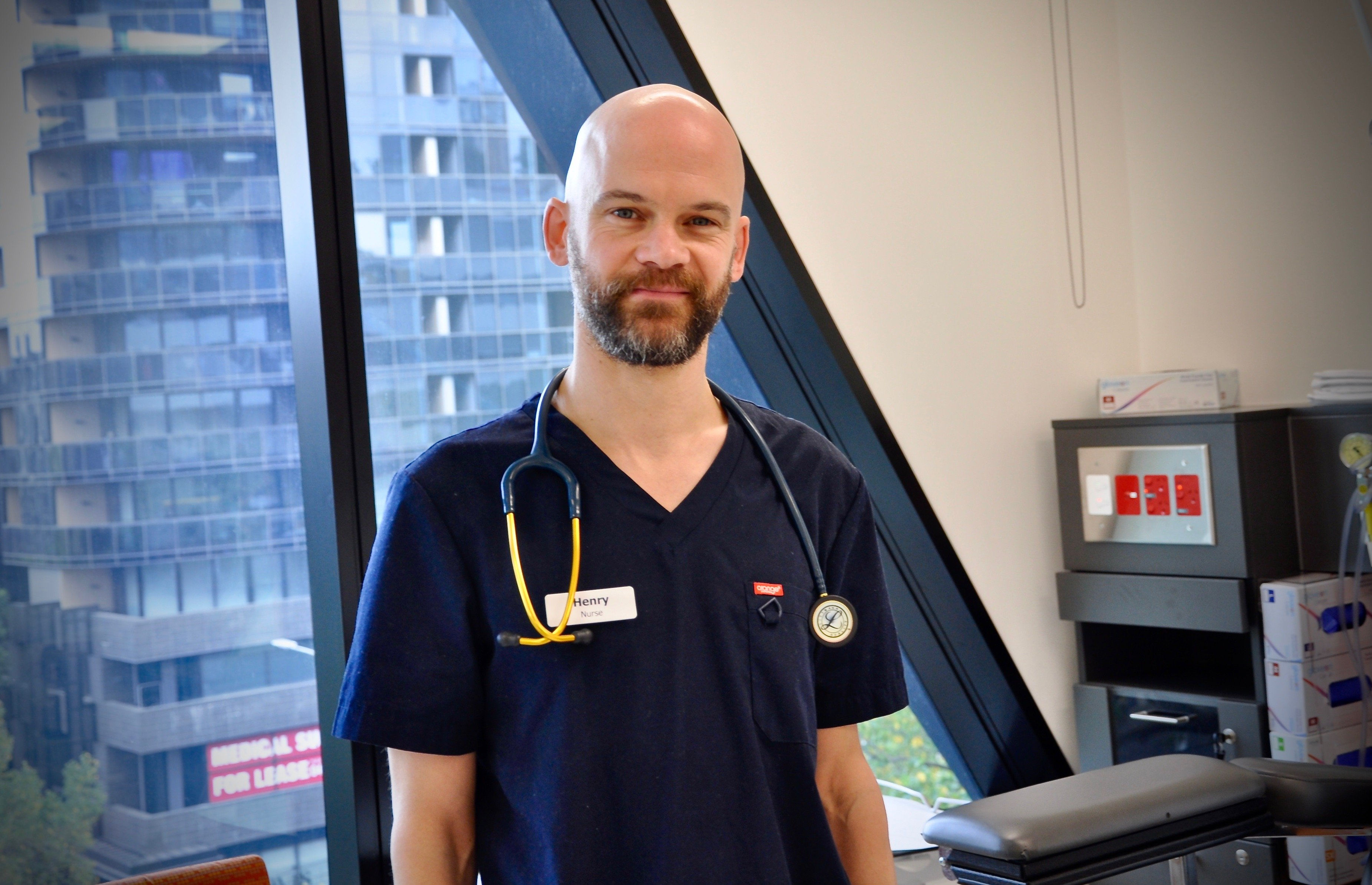"I came to nursing late. I originally studied philosophy and then I was an undertaker for a while in the UK. Then I was in a band for about 10 years before I moved to Australia because my wife is Australian. I started doing disability support work and was working with many nurses, and that's what got the cogs whirring. So, I went and studied for a two-year Master of Nursing and here I am."
What made you apply for our graduate program?
"I did a placement at Peter Mac in my first year of university and it was the standout place for me. The support was amazing, and the education was incredible compared to a lot of other placements I did. The undergraduate educator was so proactive and put so much effort into supporting and teaching us interesting stuff. And overall, it was the expertise of the nurses and the attitude they have.
You hear the term patient-centred care bandied around quite a lot but it's authentic here. I felt I could form relationships with patients at Peter Mac, and that wasn't something I could achieve at some of the bigger hospitals here."
What area are you working in with us?
"I'm in the day therapy area. I was in the medical day unit to start with, which is general with patients coming in for all sorts of reasons, so it was a good grounding in nursing. I’ve just started working in the transfusion lounge - which is the delivery of blood products essentially - and then I'll be transitioning into the chemo day unit in the second half of this year.
Just in this area there are all sorts of other specialist areas. I'm not sure where I'll be in the next five years, but I think I'll be at Peter Mac, and I get that feeling. I like the fact that mobility around the centre is really encouraged too. I spoke to one guy who was part of the nursing education team when I did my interviews and he'd been here for nine years, and I think he's worked in almost every single area. He’s just moved into theatre, which is the only area he hadn't previously worked in. Peter Mac really encourages you to get that whole picture of the cancer treatment process."
What’s an average day like in day therapy?
"First, I prepare my area - I’ve got a pod with three seats. I look at my scheduler and see what's coming up, but it doesn't always stay the same. You try and do a bit of preparation and then the patients start arriving. They come in and you give them their treatments. Sometimes they come in, are unwell, and you must assess them and be sent to the ward. You must think on your feet quite a lot with a lot of problem solving and figuring out how you can utilise the wider healthcare team to get problems addressed. Then once they finish their treatment, they will hopefully head home happy."
What are you most proud of in your first few months in the job?
"Firstly, it’s the skills side of things. You feel quite pleased when you manage to tick off competencies and become more autonomous. In this area (day therapy) you must do cannulation, blood product administration and central line management – which I have managed to get down quite quickly, meaning I don't have to rely on other people, so that feels really good.
But what makes me proud are those little moments where you have looked after a patient well for the process, sent them off, built a good rapport, and feel they're happy. That's what it's all about."
What would you say to someone considering a graduate position with us?
"If the way Peter Mac works resonates with you and gets you excited, then go for it. The impression I get is that they want to know you as a person and with the interview it's not all about your clinical experience or knowledge of cancer; it's what your attitude is and whether your approach resonates with the approach here. It’s a friendly recruitment process and a small number of grads, so it seems daunting, but you should put it as top preference if you want it."

